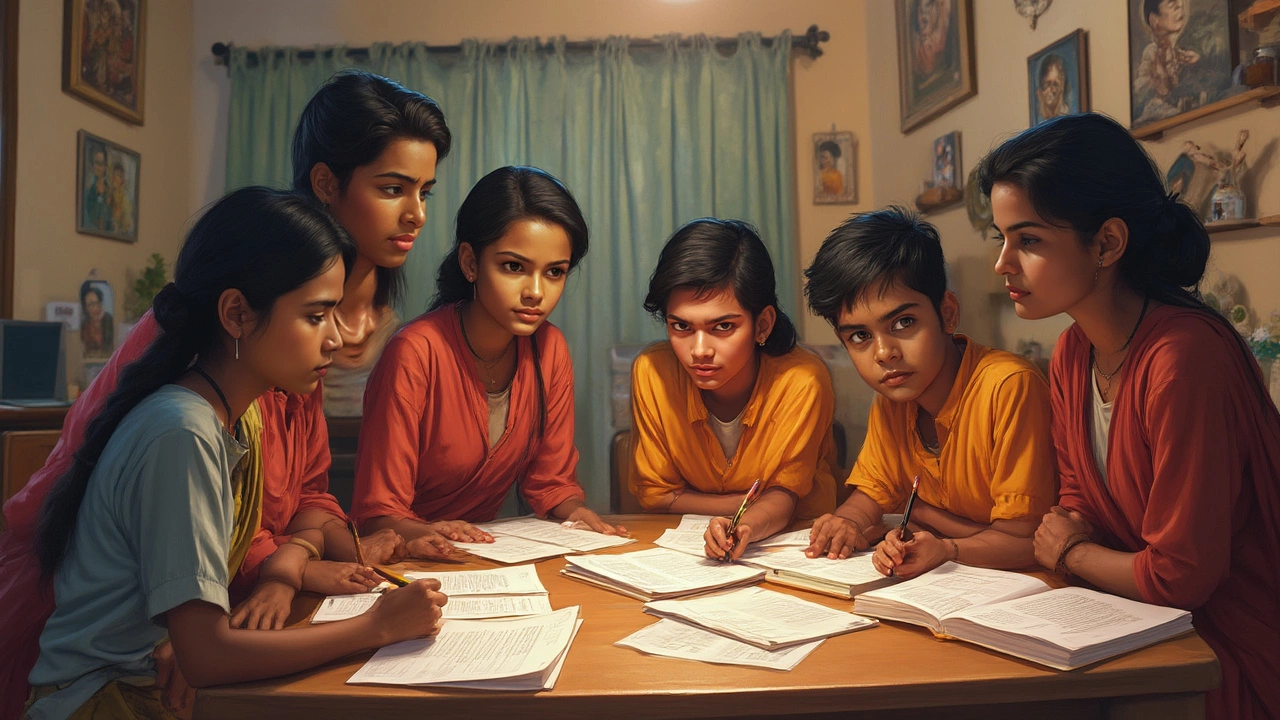Back in 2019, an education consultant tweeted about being flooded with questions from parents about the mysterious name of the "12th class degree" in India—and his post went viral. Why all the fuss? Because this one certificate opens more doors for young Indians than nearly any other piece of paper. University admissions, job applications, competitive exams—they all start here. But what is the formal name of this qualification, and why does everyone seem to call it something different? Welcome to the maze called Indian senior secondary education, where the names, rules, and the weight it carries are way more interesting than they seem.
Understanding the 12th Class: Names, Boards, and the Big Picture
If you've ever filled out an Indian job application or a university form, you know the confusion: Some documents ask for "Senior Secondary Certificate," others mention "12th Marksheets," and a few might even write "Higher Secondary." Turns out, they all mean the same thing—the educational qualification received after passing the 12th grade, which is the last year of schooling in most Indian states.
Officially, the most recognized term is the "Senior Secondary School Certificate" (SSSC) or just "Senior Secondary Certificate." This is the name given by CBSE (Central Board of Secondary Education) and most state boards. Some boards, especially in places like West Bengal, use "Higher Secondary Certificate" (HSC) instead. A table comparing a few common board names helps clear it up:
| Board | Name of Certificate |
|---|---|
| CBSE (Central Board) | Senior School Certificate (Class XII) |
| ICSE (CISCE Board) | ISC Certificate (Indian School Certificate) |
| Maharashtra State Board | Higher Secondary Certificate (HSC) |
| West Bengal Council | Higher Secondary Certificate (HSC) |
| UP Board | Intermediate Certificate |
You might hear students or parents call it "12th Pass," "plus two," or "Intermediate" depending on where they're from. But in every corner of India, it's the qualification you need to move up—the golden ticket for most careers and higher studies.
Why the 12th Matters So Much: The Gateway to Indian Futures
Let’s get real—your 12th class result can shape the next decade of your life in India. Universities check 12th marks for admissions. Engineering entrance tests like JEE Main require applicants to have cleared their 12th with Physics, Chemistry, and Math. Medical aspirants? NEET looks at your 12th grade Biology score. Even jobs in the Indian Army and government sectors have "12th pass" entry routes. Private companies across banking, retail, and sales often list "12th Pass (Senior Secondary Certificate required)" in their eligibility criteria.
It’s not just a box to check. Several Indian states run special merit scholarships for students who score high in 12th board exams. Toppers sometimes get direct interviews at national institutes or prize money from state governments—think of it as a reward for burning the midnight oil. In more ways than one, your SSSC/HSC certificate is your proof of grit and hard work in the Indian education system.
And let’s not forget the pressure. A 2023 survey by the National Council of Educational Research and Training (NCERT) found that three out of four students in class 12 felt anxious about their board exam results. Some schools even start coaching for 12th class exams from grade 10, just to make sure their students ace this milestone.

The Structure: Subjects, Streams, and Exam Patterns
The 12th class isn’t a one-size-fits-all deal. Students typically pick a stream in 11th grade—Science, Commerce, or Arts/Humanities—and continue those subjects into the 12th. Each stream opens up different future paths. Science with Math? That’s the launchpad for engineering and technology. Science with Biology? A step toward medicine. Commerce gets you into business, accounting, or economics, while Arts lets you explore everything from literature to fine arts and law.
Most boards require at least five subjects, with English (or a regional language) being compulsory. Here are some popular subject combinations:
- PCMB: Physics, Chemistry, Math, Biology (super tough, often chosen by students who want options for medical or engineering)
- PCM with Computer Science or IT: Favored by those targeting tech fields
- Commerce with Math: For aspiring Chartered Accountants or business grads
- Arts with Political Science, History, Economics: Common for future lawyers, civil servants, and academics
Board exams for 12th class usually happen between February and April. Marks are given as percentages (for example, 91.6%), and many colleges have strict cut-offs—think 96% for top Delhi University colleges. An often-overlooked fact: Each board has its own syllabus and marking scheme. So, a 90% from one board might reflect slightly different standards than a 90% from another. That’s why students (and parents) sometimes worry about which board is "easier” or “more rewarding.”
How to Get Your 12th Certificate: Process & Useful Tips
Finishing classes isn’t enough. To officially have a 12th class degree, a student has to register for and pass the public board exams. Here’s what that journey looks like:
- Registration: Your school usually handles registration with the board. You’ll fill out forms and submit photos, identity proof, etc.
- Internal Assessment: Projects, practical work, or internal tests count for a set percentage of your grade.
- Board Exams: Written tests are held at local centers. Strict rules—no phones, no talking. Papers cover all your subjects.
- Results: After a month or so, results are declared online. You’ll get a provisional scorecard first.
- Collecting the Certificate: Visit your school to pick up the hard copy of your certificate and final marksheet. Many boards also offer a downloadable digital certificate.
Don’t lose your certificate! If it’s damaged or lost, you’ll need an affidavit and an application to the board for a duplicate—a process that can take weeks.
Tech tip: From 2021, many central and state boards store certificates on DigiLocker (a government-run digital safe). It's totally free, and lets you download your result anytime—a lifesaver during college admission rush.

Life After 12th: What Doors Does Your Senior Secondary Certificate Open?
Walk into any Indian college campus, and you'll find students with wildly different dreams—but every single one got there by clearing their 12th board exam. It's the entry ticket for undergraduate courses, both in India and for many universities overseas. Indian engineering colleges (IITs, NITs), medical schools (AIIMS, JIPMER), law colleges (NLUs), and top commerce colleges—all want your 12th class marks and certificate as proof you're ready.
Even if you’re not headed for a university, the 12th certificate can get you jobs in police, defense services, banking, the railways, or private sector companies. Data from the Ministry of Labour in 2024 showed that nearly 33% of new jobs advertised in the organized sector last year required applicants to be "12th pass" as a minimum eligibility.
Your choice of stream in 12th shapes what you can study or work in after. For example, without math in 12th, you're almost always blocked from computer engineering. Skipped biology? Can't try for medicine. That’s why counselors always ask questions about your 12th subjects before helping chart out a career plan.
Relocating abroad? Hundreds of universities worldwide—especially in Canada, Australia, and the UK—recognize the Senior Secondary Certificate from India as meeting their "12th grade" entry requirement for undergraduate courses.
Here’s something a lot of fresh 12th graduates don’t realize: The actual paper certificate rarely expires, but its marks matter differently depending on your path. For competitive exams after graduation, your degree and graduation marks matter more. But for some government jobs, your 12th marks will always be part of your resume.
Struggling with decisions after 12th? You’re not alone. Education counselors now recommend talking to alumni, researching requirements for dream colleges/jobs, and checking which entrance tests fit your stream. The earlier you know your options, the better prepared you’ll be when result day comes.
